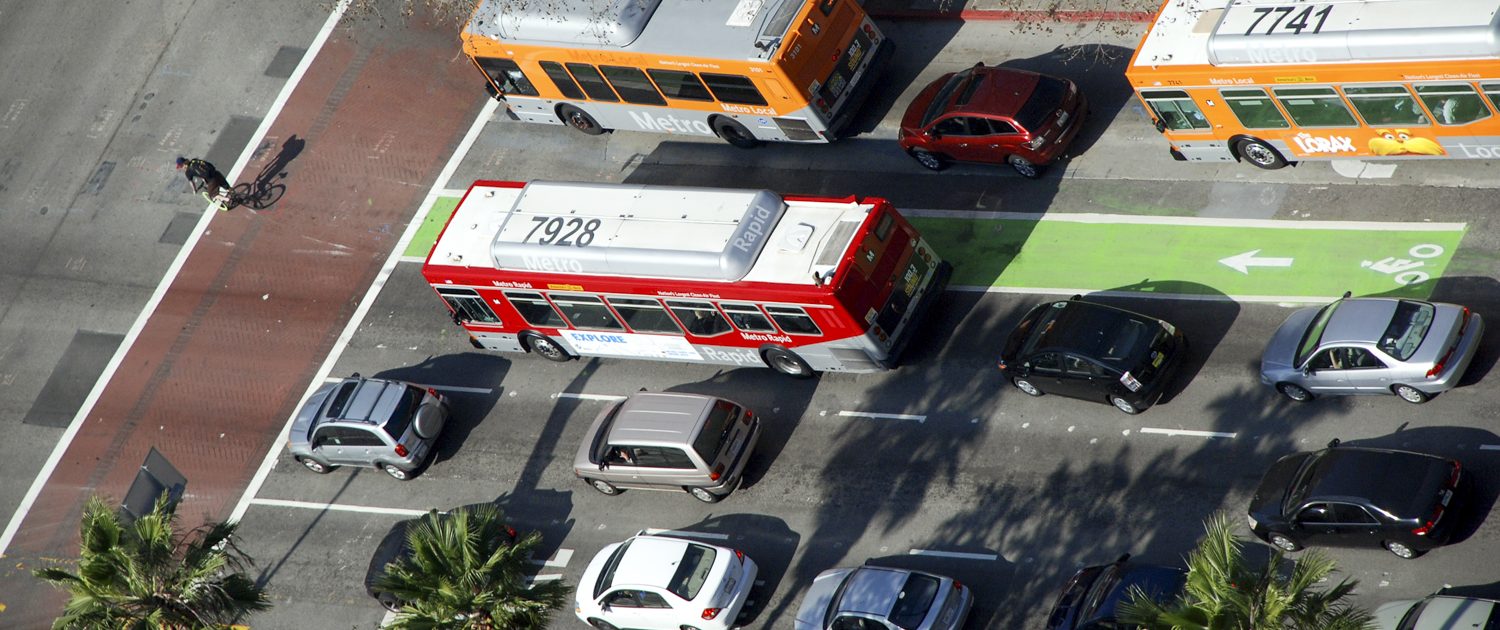
Transportation Policy and Planning students in the UCLA Luskin School of Public Affairs study the connective tissue that links communities and regions, allowing them to function and grow. TPP is not just an area of concentration in its own right, but a way to explore connections between and within other areas. Economic development planning, environmental planning, housing and community development, and urban design are all linked by travel and transportation systems. Transportation access significantly affects people’s quality of life, and differences in access help explain the gaps in opportunities between rich and poor, men and women, young and old, and people of different racial, ethnic, and social origins. Transportation policy and planning includes questions of production and distribution – how efficiently are services provided, who pays for them, and who benefits from them. Such transportation questions are windows into more fundamental questions about urban planning and public policy more broadly, and about the economy, politics, and society.
UCLA’s transportation program is a leading center of transportation policy and planning research in the U.S. The program is especially strong in the study of transportation/land use relationships, transportation as a tool of economic development, transportation politics and finance, the social and behavioral aspects of travel, and transportation/environment connections. Our program emphasizes a broad, multi-faceted understanding of the historical, spatial, economic, social, and environmental factors affecting transportation issues, while also delivering the cutting-edge analytical skills needed for professional practice. The many graduates of our program today hold high-level positions with local, regional, state, and federal agencies, international and advocacy organizations, and with private consulting firms; this alumni network often helps our most recent graduates find internships and jobs .
Students who complete the Transportation Policy and Planning area of concentration learn about current transportation policy and planning issues, the tools and techniques to analyze them, and concepts and theories to make sense of them. While the focus of many courses is passenger transportation within U.S. metropolitan areas, all aspects of transportation policy and planning are covered – inter-city, international, goods movement, and so on. Students learn about the relationships between transportation systems and metropolitan development patterns; they debate policies to address traffic congestion and urban sprawl; they explore proposals for high-tech traveler information systems within cities and high-speed rail systems between cities; they use travel forecasting models to predict travel behavior; they study the relationships between transportation access, poverty, and economic development; they learn about transportation finance at the federal, state, and local levels; and they examine policies and programs that aim to reduce the environmental costs of mobility.
Some transportation courses include field visits to meet with transportation experts at places like the Port of Long Beach, Union Station/Gateway Center, and the Los Angeles International Airport. Since 2000, student-initiated Comparative Transportation Policy courses have taken students to Berlin, Cairo, London, Mexico City, Mumbai, and Tokyo for a week of field trips and meetings with local transportation and planning officials. Beyond the departmental offerings, TPP students also benefit from the presence (and our close collaboration with) the UCLA Institute of Transportation Studies, which offers transportation research opportunities for dozens of students each year, sponsors an ongoing lecture series that brings important transportation speakers from government, research, and private industry to the UCLA campus, and provides fellowship support to over a dozen graduate transportation policy and planning students each year.
Area of Concentration Requirements
Students in TPP are required to take five courses (20 units). The urbanization requirement for TPP can count as both a Group 1 course and an urbanization course.
| Urbanization Requirement. (4 units) | UP M250 Transportation and Land Use: Urban Form (urbanization course) |
Students in TPP are required to take five courses (20 units), with at least one course from each group. The urbanization requirement for TPP can count as both a Group 1 course and an urbanization course:
| Course Group 1: Transportation and Land Use | UP M250 Transportation and Land Use: Urban Form (urbanization course)
UP 251 Parking and the City UP 252 Transportation and Land Use: Urban Design Studio |
| Course Group 2: Transportation Methods and Applications | C&EE 180 Introduction to Transportation Engineering
C&EE 181/281 Traffic Engineering Systems: Operation & Control C&EE 183/283 Transportation Sustainability C&EE 185/285 Transportation Systems Analysis C&EE 186/286 Intelligent Transportation Systems UP M213 Urban Data Science UP 221 GIS and Spatial Data Science UP M253 Travel Behavior Analysis (PP M221) UP 254 Bicycle and Pedestrian Planning |
| Course Group 3: Transportation Policy | C&EE 184/284 Transportation System and Policy Outcomes
UP 249 Special Topics in Transportation Policy and Planning UP M255 Public Transit and Shared Mobility (PP M244) UP M256 Transportation Economics, Finance, and Policy (PS M222) UP 257 Transportation and Economic Outcomes UP M258 Transportation and Environmental Issues (PS M223) |
Sample Curriculum
